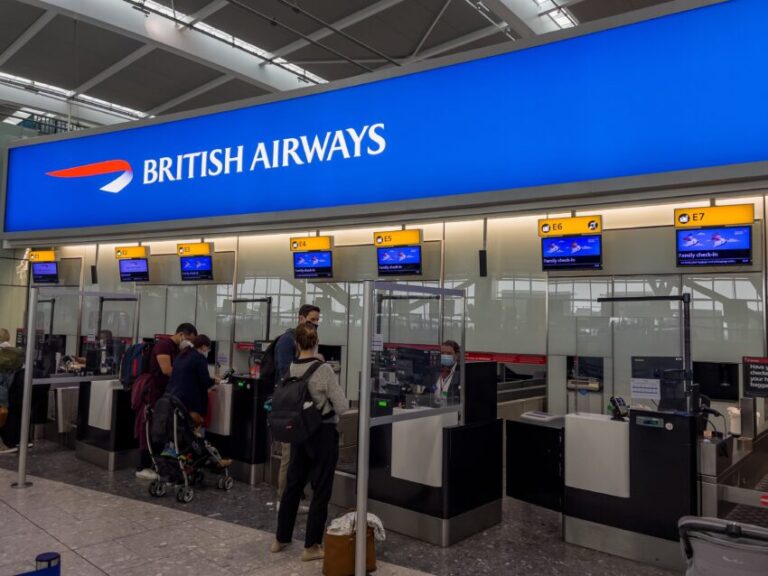[ad_1]
The UK economy grew by just 0.1% in February, despite a strong resurgence of both inbound and outbound tourism activity – including travel agencies, hotels, and tour operators.
But growth has slowed sharply since January, when gross domestic product (GDP) jumped by 0.8% as people returned to normal life following a surge in Omicron rates in December 2021.
The figure of 0.1% for February falls short of the 0.3% growth predicted by most analysts.
Data from the Office for National Statistics (ONS) showed that monthly GDP is now 1.5% above its pre-pandemic level of February 2020.
But despite a rise in tourism, the economy was dragged down by a fall in production, which slipped by 0.6% and construction, which fell by 0.1%, the ONS said.
Car production in particular has fallen steeply in recent months, pushed down by the ongoing chip shortage and the closure of Honda’s plant in Swindon.
Growth was also hampered by the reduction in the NHS Test and Trace and vaccination programmes, which made a strong contribution to GDP at the start of the year, according to Darren Morgan, director of economic statistics at the ONS.
The UK’s economy grew by 7.4% last year in a record rebound from a devastating 2020, when it suffered its biggest annual fall since just after World War One.
But last month, Chancellor of the Exchequer Rishi Sunak revised down the UK’s 2022 growth forecast to 3.8% from 6% in light of the growing cost of living crisis and surging energy prices following Russia’s invasion Ukraine.
In a statement on Monday following the release of the most recent GDP figures, Mr Sunak said: “I welcome the positive growth seen across the economy in February, which continues to recover from the pandemic, boosted by the support we provided.”
“Russia’s invasion of Ukraine is creating additional economic uncertainty here in the UK, but it is right that we are responding robustly against Putin’s unprovoked invasion,” he said, adding: “We are supporting families with the cost of living with £22bn of support this financial year.”
The average UK household will experience a £2,553 drop in income this year, half of which is as a result of the invasion of Ukraine, according to the Centre for Economics and Business Research (CEBR).
There is also expected to be a considerable jump in the prices we pay at the supermarket and petrol pump.
The CEBR predicts that inflation will now peak at 8.7% next quarter and then stay twice as high as expected until the second half of 2023. This means a shopping basket that cost £20 a year ago will cost almost £22 in the next few months.
The impact of deadly storms Dudley, Eunice and Franklin, which all hit the UK between 16 and 21 February, may have also weighed on economic growth, the ONS said.
“Most of those reporting a negative impact were in service industries with comments received from businesses operating in areas including accountancy, leisure parks and holiday centres, photography, hairdressing and beauty, leasing of construction equipment, restaurants and takeaways, and marquee hire,” the report stated.
“However, some businesses reported a positive impact on turnover such as those working in fencing, torch sales, and temporary off-grid power.”
[ad_2]
Source link























0 Comments